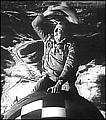The use of private military contractors appears to have harmed, rather than helped the counterinsurgency efforts of the U.S. mission in Iraq. Even worse, it has created a dependency syndrome on the private marketplace that not merely creates critical vulnerabilities, but shows all the signs of the last downward spirals of an addiction. If we judge by what has happened in Iraq, when it comes to private military contractors and counterinsurgency, the U.S. has locked itself into a vicious cycle. It can’t win with them, but can’t go to war without them.
The study explores how the current use of private military contractors:
• Allows policymakers to dodge key decisions that carry political costs, thus leading to operational choices that might not reflect public interest.
• Enables a “bigger is better” approach to operations that runs contrary to the best lessons of U.S. military strategy.
• Inflames popular opinion against, rather than for, the American mission through operational practices that ignore the fundamental lessons of counterinsurgency.
• Participated in a series of abuses that have undermined efforts at winning “hearts and minds” of the Iraqi people.
• Weakened American efforts in the “war of ideas” both inside Iraq and beyond.
• Reveals a double standard towards Iraqi civilian institutions that undermines efforts to build up these very same institutions, another key lesson of counterinsurgency.
• Forced policymakers to jettison strategies designed to win the counterinsurgency on multiple occasions, before they even had a chance to succeed.
















Bookmarks